Works

East of Eden
John Steinbeck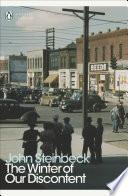
The Winter of Our Discontent
John SteinbeckThe Grapes of Wrath
John Steinbeck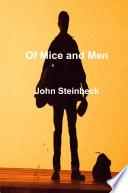
Of Mice and Men
John Steinbeck
Travels with Charley: In Search of America
John Steinbeck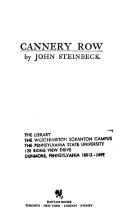
Cannery Row
John Steinbeck
The Acts of King Arthur and His Noble Knights
John Steinbeck
The Pearl
John Steinbeck
The Log from the Sea of Cortez
John Steinbeck
Burning Bright
John Steinbeck
Sweet Thursday
John Steinbeck
The Wayward Bus
John Steinbeck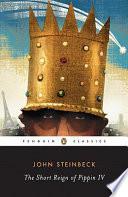
The Short Reign of Pippin IV
John Steinbeck
Tortilla Flat
John Steinbeck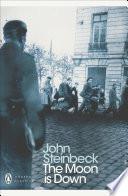
The Moon Is Down
John Steinbeck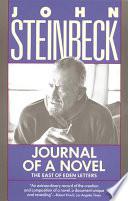
Journal of a Novel
John Steinbeck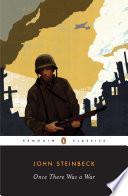
Once There Was a War
John Steinbeck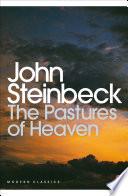
The Pastures of Heaven
John SteinbeckTo a God Unknown
John SteinbeckAmerica and Americans
John SteinbeckFamous John Steinbeck Quotes
“Power does not corrupt. Fear corrupts… perhaps the fear of a loss of power.”
The Short Reign of Pippin IV (1957), p. 102
“A sad soul can kill you quicker, far quicker, than a germ.”
Source: Travels with Charley: In Search of America
Variant: My father said she was a strong woman, and I believe a strong woman may be stronger than a man, particularly if she happens to have love in her heart. I guess a loving woman is almost indestructible.
Source: East of Eden
John Steinbeck Quotes about people
“There ain't no sin and there ain't no virtue. There's just stuff people do.”
Source: The Grapes of Wrath
The Winter of Our Discontent (1961), unplaced by chapter
“People who are most afraid of their dreams convince themselves they don't dream at all.”
Source: The Winter of Our Discontent
“I wonder how many people I have looked at all my life and never really seen.”
Variant: I wonder how many people I've looked at all my life and never seen.
Source: East of Eden
John Steinbeck Quotes about the world
Source: East of Eden (1952)
Context: When a man comes to die, no matter what his talents and influence and genius, if he dies unloved his life must be a failure to him and his dying a cold horror. It seems to me that if you or I must choose between two courses of thought or action, we should remember our dying and try so to live that our death brings no pleasure to the world.
We have only one story. All novels, all poetry, are built on the never-ending contest in ourselves of good and evil. And it occurs to me that evil must constantly respawn, while good, while virtue, is immortal. Vice has always a new fresh young face, while virtue is venerable as nothing else in the world is.
Context: In uncertainty I am certain that underneath their topmost layers of frailty men want to be good and want to be loved. Indeed, most of their vices are attempted short cuts to love. When a man comes to die, no matter what his talents and influence and genius, if he dies unloved his life must be a failure to him and his dying a cold horror. It seems to me that if you or I must choose between two courses of thought or action, we should remember our dying and try so to live that our death brings no pleasure to the world.
We have only one story. All novels, all poetry, are built on the never-ending contest in ourselves of good and evil. And it occurs to me that evil must constantly respawn, while good, while virtue, is immortal. Vice has always a new fresh young face, while virtue is venerable as nothing else in the world is.
John Steinbeck: Trending quotes
John Steinbeck Quotes
“I was born lost and take no pleasure in being found.”
Source: Travels with Charley: In Search of America
“None of it is important or all of it is.”
Introduction
The Log from the Sea of Cortez (1951)
Context: "... Let us go," we said, "into the Sea of Cortez, realizing that we become forever a part of it; that our rubber boots slogging through a flat of eel-grass, that the rocks we turn over in a tide pool, make us truly and permanently a factor in the ecology of the region. We shall take something away from it, but we shall leave something too." And if we seem a small factor in a huge pattern, nevertheless it is of relative importance. We take a tiny colony of soft corals from a rock in a little water world. And that isn't terribly important to the tide pool. Fifty miles away the Japanese shrimp boats are dredging with overlapping scoops, bringing up tons of shrimps, rapidly destroying the species so that it may never come back, and with the species destroying the ecological balance of the whole region. That isn't very important in the world. And thousands of miles away the great bombs are falling and the stars are not moved thereby. None of it is important or all of it is.
Source: Tortilla Flat
Source: East of Eden (1952)
Variant: What good is the warmth of summer, without the cold of winter to give it sweetness.
Source: Travels with Charley: In Search of America
Source: The Pearl (1947), Ch. III
“It's so much darker when a light goes out than it would have been if it had never shone.”
Source: The Winter of Our Discontent
Source: East of Eden
Interview with Robert van Gelder (April 1947), as quoted in John Steinbeck : A Biography (1994) by Jay Parini
Journal entry (1938), quoted in the Introduction to a 1994 edition of Of Mice and Men by Susan Shillinglaw, p. vii
Context: In every bit of honest writing in the world … there is a base theme. Try to understand men, if you understand each other you will be kind to each other. Knowing a man well never leads to hate and nearly always leads to love. There are shorter means, many of them. There is writing promoting social change, writing punishing injustice, writing in celebration of heroism, but always that base theme. Try to understand each other.
“There's more beauty in truth, even if it is dreadful beauty.”
Source: East of Eden
“To be alive at all is to have scars.”
Source: The Winter of Our Discontent (1961), Part One, Chapter VI
“My imagination will get me a passport to hell one day.”
Source: East of Eden
Source: The Winter of Our Discontent (1961), Part One, Chapter III
Source: East of Eden
Source: The Log from the Sea of Cortez (1951), Chapter 11
Context: There is a strange duality in the human which makes for an ethical paradox. We have definitions of good qualities and of bad; not changing things, but generally considered good and bad throughout the ages and throughout the species. Of the good, we think always of wisdom, tolerance, kindliness, generosity, humility; and the qualities of cruelty, greed, self-interest, graspingness, and rapacity are universally considered undesirable. And yet in our structure of society, the so-called and considered good qualities are invariable concomitants of failure, while the bad ones are the cornerstones of success. A man — a viewing-point man — while he will love the abstract good qualities and detest the abstract bad, will nevertheless envy and admire the person who though possessing the bad qualities has succeeded economically and socially, and will hold in contempt that person whose good qualities have caused failure. When such a viewing-point man thinks of Jesus or St. Augustine or Socrates he regards them with love because they are the symbols of the good he admires, and he hates the symbols of the bad. But actually he would rather be successful than good. In an animal other than man we would replace the term “good” with “weak survival quotient” and the term “bad” with “strong survival quotient.” Thus, man in his thinking or reverie status admires the progression toward extinction, but in the unthinking stimulus which really activates him he tends toward survival. Perhaps no other animal is so torn between alternatives. Man might be described fairly adequately, if simply, as a two-legged paradox. He has never become accustomed to the tragic miracle of consciousness. Perhaps, as has been suggested, his species is not set, has not jelled, but is still in a state of becoming, bound by his physical memories to a past of struggle and survival, limited in his futures by the uneasiness of thought and consciousness.
Nobel Prize acceptance speech (1962)
Context: Literature was not promulgated by a pale and emasculated critical priesthood singing their litanies in empty churches — nor is it a game for the cloistered elect, the tinhorn mendicants of low calorie despair.
Literature is as old as speech. It grew out of human need for it, and it has not changed except to become more needed.
The skalds, the bards, the writers are not separate and exclusive. From the beginning, their functions, their duties, their responsibilities have been decreed by our species.
East of Eden (1952)
Context: Our species is the only creative species, and it has only one creative instrument, the individual mind and spirit of a man. Nothing was ever created by two men. There are no good collaborations, whether in art, in music, in poetry, in mathematics, in philosophy. Once the miracle of creation has taken place, the group can build and extend it, but the group never invents anything. The preciousness lies in the lonely mind of a man.
And now the forces marshaled around the concept of the group have declared a war of extermination on that preciousness, the mind of man. By disparagement, by starvation, by repressions, forced direction, and the stunning blows of conditioning, the free, roving mind is being pursued, roped, blunted, drugged. It is a sad suicidal course our species seems to have taken.
And this I believe: that the free, exploring mind of the individual human is the most valuable thing in the world. And this I would fight for: the freedom of the mind to take any direction it wishes, undirected. And this I must fight against: any religion, or government which limits or destroys the individual. This is what I am and what I am about. I can understand why a system built on a pattern must try to destroy the free mind, for it is the one thing which can by inspection destroy such a system. Surely I can understand this, and I hate it and I will fight against it to preserve the one thing that separates us from the uncreative beasts. If the glory can be killed, we are lost.
“There is a strange duality in the human which makes for an ethical paradox.”
Source: The Log from the Sea of Cortez (1951), Chapter 11
Context: There is a strange duality in the human which makes for an ethical paradox. We have definitions of good qualities and of bad; not changing things, but generally considered good and bad throughout the ages and throughout the species. Of the good, we think always of wisdom, tolerance, kindliness, generosity, humility; and the qualities of cruelty, greed, self-interest, graspingness, and rapacity are universally considered undesirable. And yet in our structure of society, the so-called and considered good qualities are invariable concomitants of failure, while the bad ones are the cornerstones of success. A man — a viewing-point man — while he will love the abstract good qualities and detest the abstract bad, will nevertheless envy and admire the person who though possessing the bad qualities has succeeded economically and socially, and will hold in contempt that person whose good qualities have caused failure. When such a viewing-point man thinks of Jesus or St. Augustine or Socrates he regards them with love because they are the symbols of the good he admires, and he hates the symbols of the bad. But actually he would rather be successful than good. In an animal other than man we would replace the term “good” with “weak survival quotient” and the term “bad” with “strong survival quotient.” Thus, man in his thinking or reverie status admires the progression toward extinction, but in the unthinking stimulus which really activates him he tends toward survival. Perhaps no other animal is so torn between alternatives. Man might be described fairly adequately, if simply, as a two-legged paradox. He has never become accustomed to the tragic miracle of consciousness. Perhaps, as has been suggested, his species is not set, has not jelled, but is still in a state of becoming, bound by his physical memories to a past of struggle and survival, limited in his futures by the uneasiness of thought and consciousness.
“Sometimes a kind of glory lights up the mind of a man. It happens to nearly everyone.”
East of Eden (1952)
Context: Sometimes a kind of glory lights up the mind of a man. It happens to nearly everyone. You can feel it growing or preparing like a fuse burning toward dynamite. It is a feeling in the stomach, a delight of the nerves, of the forearms. The skin tastes the air, and every deep-drawn breath is sweet. Its beginning has the pleasure of a great stretching yawn; it flashes in the brain and the whole world glows outside your eyes. A man may have lived all his life in the gray, and the land and trees of him dark and somber. The events, even the important ones, may have trooped by faceless and pale. And then — the glory — so that a cricket song sweetens the ears, the smell of the earth rises chanting to his nose, and dappling light under a tree blesses his eyes. Then a man pours outward, a torrent of him, and yet he is not diminished…
“Faulkner, more than most men, was aware of human strength as well as of human weakness.”
Nobel Prize acceptance speech (1962)
Context: Humanity has been passing through a gray and desolate time of confusion. My great predecessor, William Faulkner, speaking here, referred to it as a tragedy of universal fear so long sustained that there were no longer problems of the spirit, so that only the human heart in conflict with itself seemed worth writing about.
Faulkner, more than most men, was aware of human strength as well as of human weakness. He knew that the understanding and the resolution of fear are a large part of the writer's reason for being.
This is not new. The ancient commission of the writer has not changed. He is charged with exposing our many grievous faults and failures, with dredging up to the light our dark and dangerous dreams for the purpose of improvement.
“My whole work drive has been aimed at making people understand each other”
Letter to Elizabeth Otis, expressing dissatisfaction with L'Affaire Lettuceburg — a satire he abandoned in favor of work on what became The Grapes of Wrath (c. mid-May 1938) as quoted in Conversations with John Steinbeck (1988) edited by Thomas Fensch, p. 38
Context: You see this book is finished and it is a bad book and I must get rid of it. It can't be printed. It is bad because it isn't honest. Oh! the incidents all happened but — I'm not telling as much of the truth about them as I know. In satire you have to restrict the picture and I just can't do satire. I've written three books now that were dishonest because they were less than the best that I could do. One you never saw because I burned it the day I finished it. … My whole work drive has been aimed at making people understand each other and then I deliberately write this book, the aim of which is to cause hatred through partial understanding. My father would have called it a smart-alec book. It was full of tricks to make people ridiculous. If I can't do better I have slipped badly. And that I won't admit — yet.
Source: The Log from the Sea of Cortez (1951), Chapter 8
Context: Among primitives sometimes evil is escaped by never mentioning the name, as in Malaysia, where one never mentions a tiger by name for fear of calling him. Among others, as even among ourselves, the giving of a name establishes a familiarity which renders the thing impotent. It is interesting to see how some scientists and philosophers, who are an emotional and fearful group, are able to protect themselves against fear. In a modern scene, when the horizons stretch out and your philosopher is likely to fall off the world like a Dark Age mariner, he can save himself by establishing a taboo-box which he may call "mysticism" or "supernaturalism" or "radicalism." Into this box he can throw all those thoughts which frighten him and thus be safe from them.
Pt. 1
Travels With Charley: In Search of America (1962)
Context: When I was very young and the urge to be someplace was on me, I was assured by mature people that maturity would cure this itch. When years described me as mature, the remedy prescribed was middle age. In middle age I was assured that greater age would calm my fever and now that I am fifty-eight perhaps senility will do the job. Nothing has worked.... In other words, I don’t improve, in further words, once a bum always a bum. I fear the disease is incurable.
“Then a man pours outward, a torrent of him, and yet he is not diminished…”
East of Eden (1952)
Context: Sometimes a kind of glory lights up the mind of a man. It happens to nearly everyone. You can feel it growing or preparing like a fuse burning toward dynamite. It is a feeling in the stomach, a delight of the nerves, of the forearms. The skin tastes the air, and every deep-drawn breath is sweet. Its beginning has the pleasure of a great stretching yawn; it flashes in the brain and the whole world glows outside your eyes. A man may have lived all his life in the gray, and the land and trees of him dark and somber. The events, even the important ones, may have trooped by faceless and pale. And then — the glory — so that a cricket song sweetens the ears, the smell of the earth rises chanting to his nose, and dappling light under a tree blesses his eyes. Then a man pours outward, a torrent of him, and yet he is not diminished…
“Nobody never gets to heaven, and nobody gets no land. It's just in their head.”
Source: Of Mice and Men (1937), Ch. 4, p. 74
Context: They come, an' they quit an' go on; an' every damn one of 'em's got a little piece of land in his head. An' never a God damn one of 'em ever gets it. Just like heaven. Ever'body wants a little piece of lan'. I read plenty of books out here. Nobody never gets to heaven, and nobody gets no land. It's just in their head.
“Oh! the incidents all happened but — I'm not telling as much of the truth about them as I know.”
Letter to Elizabeth Otis, expressing dissatisfaction with L'Affaire Lettuceburg — a satire he abandoned in favor of work on what became The Grapes of Wrath (c. mid-May 1938) as quoted in Conversations with John Steinbeck (1988) edited by Thomas Fensch, p. 38
Context: You see this book is finished and it is a bad book and I must get rid of it. It can't be printed. It is bad because it isn't honest. Oh! the incidents all happened but — I'm not telling as much of the truth about them as I know. In satire you have to restrict the picture and I just can't do satire. I've written three books now that were dishonest because they were less than the best that I could do. One you never saw because I burned it the day I finished it. … My whole work drive has been aimed at making people understand each other and then I deliberately write this book, the aim of which is to cause hatred through partial understanding. My father would have called it a smart-alec book. It was full of tricks to make people ridiculous. If I can't do better I have slipped badly. And that I won't admit — yet.
Nobel Prize acceptance speech (1962)
Context: Humanity has been passing through a gray and desolate time of confusion. My great predecessor, William Faulkner, speaking here, referred to it as a tragedy of universal fear so long sustained that there were no longer problems of the spirit, so that only the human heart in conflict with itself seemed worth writing about.
Faulkner, more than most men, was aware of human strength as well as of human weakness. He knew that the understanding and the resolution of fear are a large part of the writer's reason for being.
This is not new. The ancient commission of the writer has not changed. He is charged with exposing our many grievous faults and failures, with dredging up to the light our dark and dangerous dreams for the purpose of improvement.
As quoted in Woody Guthrie: A Life (1981) by Joe Klein, p. 160
Context: Woody is just Woody. Thousands of people do not know he has any other name. He is just a voice and a guitar. He sings the songs of a people and I suspect that he is, in a way, that people. Harsh voiced and nasal, his guitar hanging like a tire iron on a rusty rim, there is nothing sweet about Woody, and there is nothing sweet about the songs he sings. But there is something more important for those who will listen. There is the will of the people to endure and fight against oppression. I think we call this the American spirit.
Nobel Prize acceptance speech (1962)
Context: We have usurped many of the powers we once ascribed to God.
Fearful and unprepared, we have assumed lordship over the life or death of the whole world — of all living things.
The danger and the glory and the choice rest finally in man. The test of his perfectibility is at hand.
Having taken Godlike power, we must seek in ourselves for the responsibility and the wisdom we once prayed some deity might have.
Man himself has become our greatest hazard and our only hope.
So that today, St. John the apostle may well be paraphrased: In the end is the Word, and the Word is Man — and the Word is with Men.
“In the end is the Word, and the Word is Man — and the Word is with Men.”
Nobel Prize acceptance speech (1962)
Context: We have usurped many of the powers we once ascribed to God.
Fearful and unprepared, we have assumed lordship over the life or death of the whole world — of all living things.
The danger and the glory and the choice rest finally in man. The test of his perfectibility is at hand.
Having taken Godlike power, we must seek in ourselves for the responsibility and the wisdom we once prayed some deity might have.
Man himself has become our greatest hazard and our only hope.
So that today, St. John the apostle may well be paraphrased: In the end is the Word, and the Word is Man — and the Word is with Men.
“The techniques of opening conversation are universal.”
Pt. 1
Travels With Charley: In Search of America (1962)
Context: The techniques of opening conversation are universal. I knew long ago and rediscovered that the best way to attract attention, help, and conversation is to be lost. A man who seeing his mother starving to death on a path kicks her in the stomach to clear the way, will cheerfully devote several hours of his time giving wrong directions to a total stranger who claims to be lost.
“He sings the songs of a people and I suspect that he is, in a way, that people.”
As quoted in Woody Guthrie: A Life (1981) by Joe Klein, p. 160
Context: Woody is just Woody. Thousands of people do not know he has any other name. He is just a voice and a guitar. He sings the songs of a people and I suspect that he is, in a way, that people. Harsh voiced and nasal, his guitar hanging like a tire iron on a rusty rim, there is nothing sweet about Woody, and there is nothing sweet about the songs he sings. But there is something more important for those who will listen. There is the will of the people to endure and fight against oppression. I think we call this the American spirit.
“If the glory can be killed, we are lost.”
East of Eden (1952)
Context: Our species is the only creative species, and it has only one creative instrument, the individual mind and spirit of a man. Nothing was ever created by two men. There are no good collaborations, whether in art, in music, in poetry, in mathematics, in philosophy. Once the miracle of creation has taken place, the group can build and extend it, but the group never invents anything. The preciousness lies in the lonely mind of a man.
And now the forces marshaled around the concept of the group have declared a war of extermination on that preciousness, the mind of man. By disparagement, by starvation, by repressions, forced direction, and the stunning blows of conditioning, the free, roving mind is being pursued, roped, blunted, drugged. It is a sad suicidal course our species seems to have taken.
And this I believe: that the free, exploring mind of the individual human is the most valuable thing in the world. And this I would fight for: the freedom of the mind to take any direction it wishes, undirected. And this I must fight against: any religion, or government which limits or destroys the individual. This is what I am and what I am about. I can understand why a system built on a pattern must try to destroy the free mind, for it is the one thing which can by inspection destroy such a system. Surely I can understand this, and I hate it and I will fight against it to preserve the one thing that separates us from the uncreative beasts. If the glory can be killed, we are lost.
“A book is like a man — clever and dull, brave and cowardly, beautiful and ugly.”
On Publishing
Writers at Work (1977)
Context: A book is like a man — clever and dull, brave and cowardly, beautiful and ugly. For every flowering thought there will be a page like a wet and mangy mongrel, and for every looping flight a tap on the wing and a reminder that wax cannot hold the feathers firm too near the sun.
Letter to Elizabeth Otis (1938), as quoted in Conversations with John Steinbeck (1988) edited by Thomas Fensch, p. 37
Context: I must go over into the interior valleys. … There are five thousand families starving to death over there, not just hungry but actually starving. The government is trying to feed them and get medical attention to them, with the Fascist group of utilities and banks and huge growers sabotaging the thing all along the line, and yelling for a balanced budget. In one tent there were twenty people quarantined for small pox and two of the women are to have babies in that tent this week. I've tied into the thing from the first and I must get down there and see it and see if I can do something to knock these murderers on the heads.
Do you know what they're afraid of? They think that if these people are allowed to live in camps with proper sanitary facilities they will organize, and that is the bugbear of the large landowner and the corporate farmer. The states and counties will give them nothing because they are outsiders. But the crops of any part of this state could not be harvested without them. … The death of children by starvation in our valleys is simply staggering. … I'll do what I can. … Funny how mean and little books become in the face of such tragedies.
“Humanity has been passing through a gray and desolate time of confusion.”
Nobel Prize acceptance speech (1962)
Context: Humanity has been passing through a gray and desolate time of confusion. My great predecessor, William Faulkner, speaking here, referred to it as a tragedy of universal fear so long sustained that there were no longer problems of the spirit, so that only the human heart in conflict with itself seemed worth writing about.
Faulkner, more than most men, was aware of human strength as well as of human weakness. He knew that the understanding and the resolution of fear are a large part of the writer's reason for being.
This is not new. The ancient commission of the writer has not changed. He is charged with exposing our many grievous faults and failures, with dredging up to the light our dark and dangerous dreams for the purpose of improvement.
Letter to Elizabeth Otis (1938), as quoted in Conversations with John Steinbeck (1988) edited by Thomas Fensch, p. 37
Context: I must go over into the interior valleys. … There are five thousand families starving to death over there, not just hungry but actually starving. The government is trying to feed them and get medical attention to them, with the Fascist group of utilities and banks and huge growers sabotaging the thing all along the line, and yelling for a balanced budget. In one tent there were twenty people quarantined for small pox and two of the women are to have babies in that tent this week. I've tied into the thing from the first and I must get down there and see it and see if I can do something to knock these murderers on the heads.
Do you know what they're afraid of? They think that if these people are allowed to live in camps with proper sanitary facilities they will organize, and that is the bugbear of the large landowner and the corporate farmer. The states and counties will give them nothing because they are outsiders. But the crops of any part of this state could not be harvested without them. … The death of children by starvation in our valleys is simply staggering. … I'll do what I can. … Funny how mean and little books become in the face of such tragedies.
Radio interview (1939) quoted in Introduction by Robert DeMott to a 1992 edition of The Grapes of Wrath
Context: Boileau said that Kings, Gods and Heroes only were fit subjects for literature. The writer can only write about what he admires. Present-day kings aren't very inspiring, the gods are on a vacation and about the only heroes left are the scientists and the poor … And since our race admires gallantry, the writer will deal with it where he finds it. He finds it in the struggling poor now.
East of Eden (1952)
Context: Our species is the only creative species, and it has only one creative instrument, the individual mind and spirit of a man. Nothing was ever created by two men. There are no good collaborations, whether in art, in music, in poetry, in mathematics, in philosophy. Once the miracle of creation has taken place, the group can build and extend it, but the group never invents anything. The preciousness lies in the lonely mind of a man.
And now the forces marshaled around the concept of the group have declared a war of extermination on that preciousness, the mind of man. By disparagement, by starvation, by repressions, forced direction, and the stunning blows of conditioning, the free, roving mind is being pursued, roped, blunted, drugged. It is a sad suicidal course our species seems to have taken.
And this I believe: that the free, exploring mind of the individual human is the most valuable thing in the world. And this I would fight for: the freedom of the mind to take any direction it wishes, undirected. And this I must fight against: any religion, or government which limits or destroys the individual. This is what I am and what I am about. I can understand why a system built on a pattern must try to destroy the free mind, for it is the one thing which can by inspection destroy such a system. Surely I can understand this, and I hate it and I will fight against it to preserve the one thing that separates us from the uncreative beasts. If the glory can be killed, we are lost.
